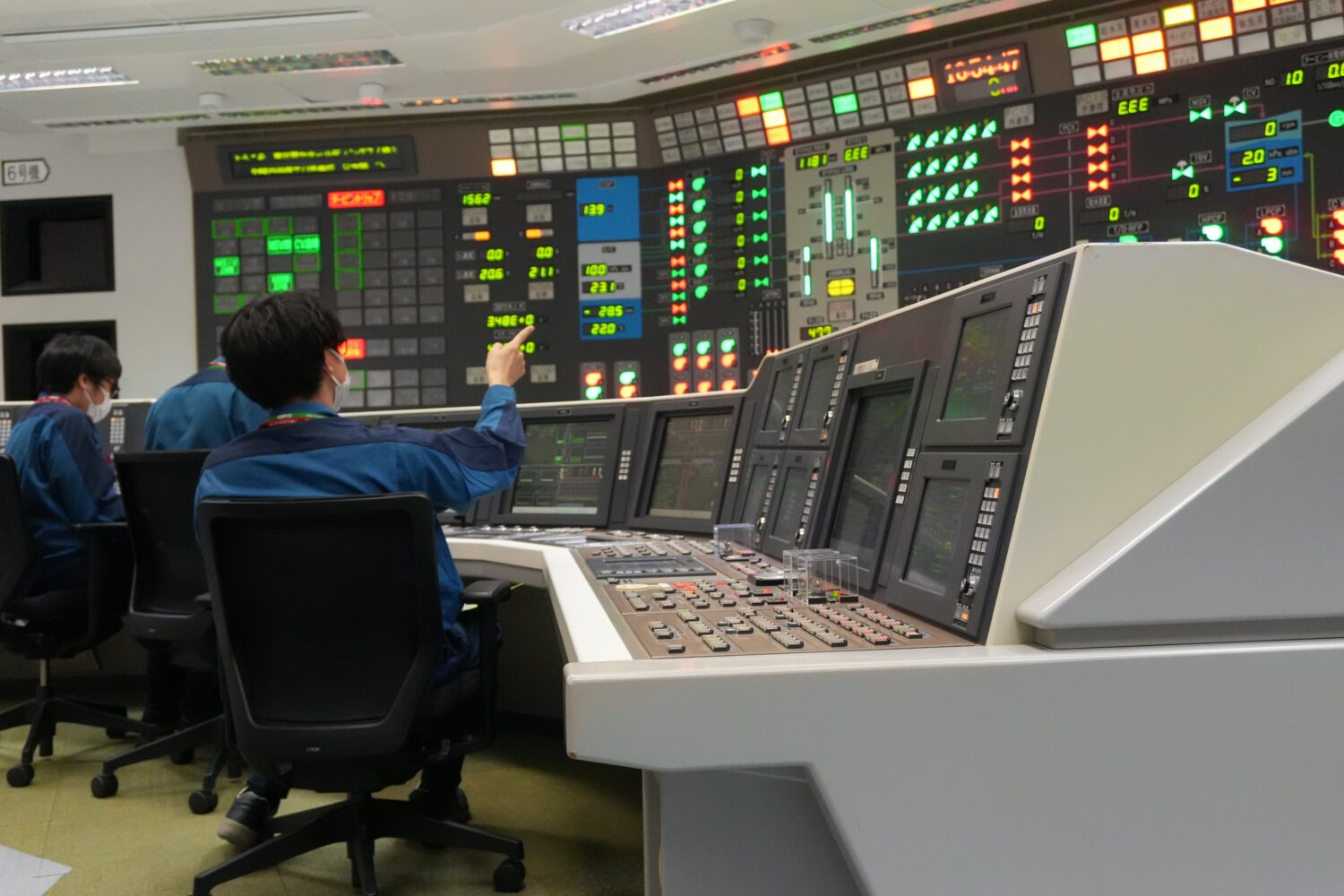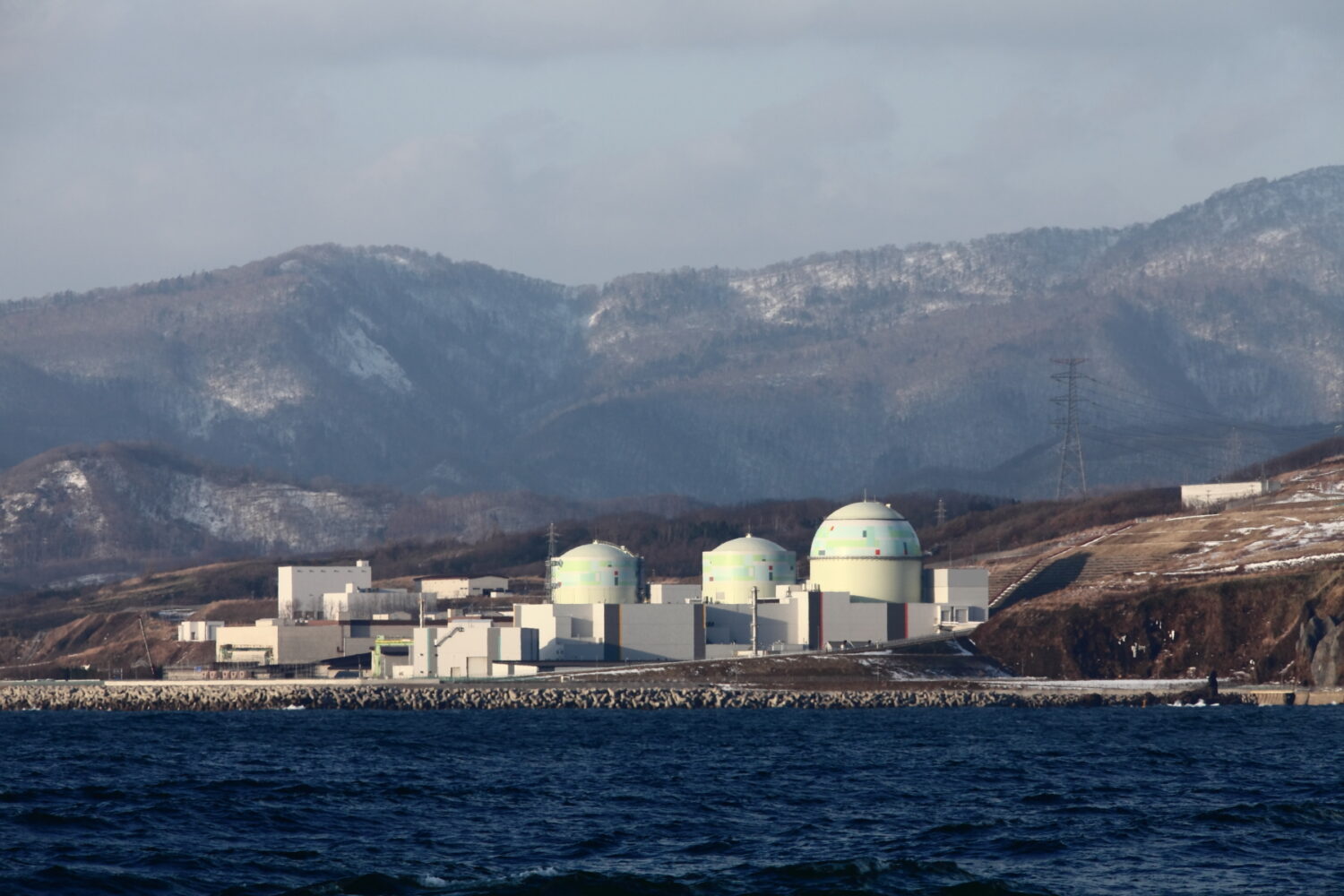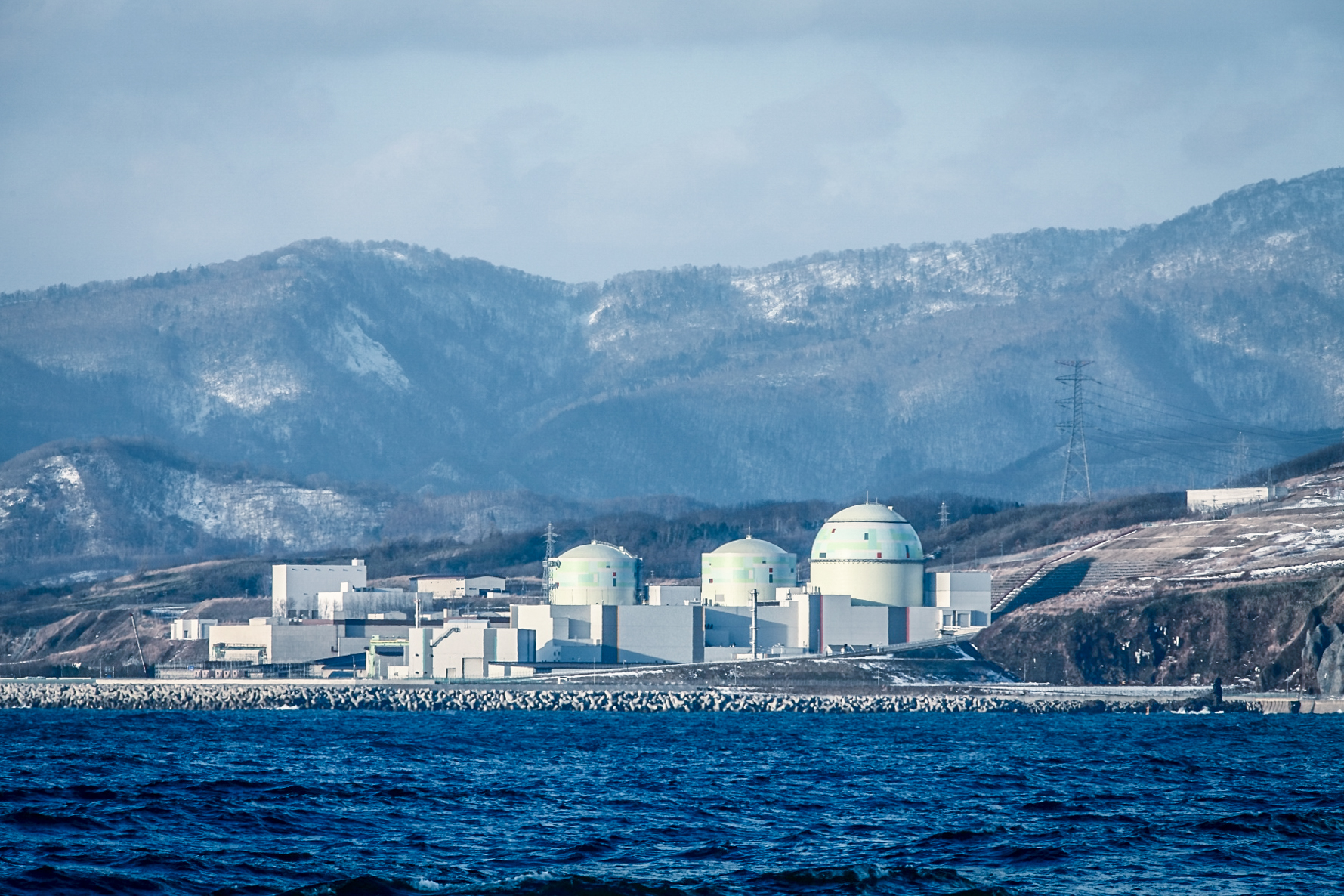Zengenkyo is composed of 28 municipalities that host or plan to host nuclear power facilities. Its purpose is to “unite and resolve various issues stemming from hosting nuclear power plants (NPPs), secure the safety of the people, and advance regional development.”
The organization’s FY2023 business plan, approved at the conference, includes a 58-item request to the national government and authorities concerned involving the reconstruction of affected areas, safety regulation and disaster-prevention measures, nuclear policy, and measures for siting areas. The conference also confirmed that Zengenkyo would strongly urge the government and related bodies to realize those items as soon as possible.
This was the first general conference for Chairman Yonezawa, who had just become mayor of Tsuruga City in April. In his opening greeting, he said that he would do his best and work with all sincerity for the success of Zengenkyo.
During the previous week, he had visited the Hamadori area in Fukushima prefecture, including the portion designated as places “where residents will not be able to return home for a long time.” Seeing for himself the areas where people were unable to go back to their homes 12 years after the accident at Fukushima Daiichi, he said that he was even more determined to squarely face the present conditions of the prefecture. He then reemphasized the need for long-term activities toward reconstruction.
The mayor also referred to recent developments in nuclear policy arising out of the work of the Japanese government’s Green Transformation (GX) Implementation Council. He praised the fact that the government would support the research and construction of next-generation advanced reactors and that a stance on long-term utilization of NPPs had been made clear. At the same time, he noted stagnation on matters related to radioactive waste, the nuclear fuel cycle, and nuclear disaster preparedness. He said that the council would speak out on behalf of siting areas and insisted that the national government “be at the fore and take responsibility.”
HOSODA Hiroyuki, lawmaker of the House of Representatives (lower house) and a member of the Liberal Democratic Party (LDP), was present at the conference as a guest. About two decades ago, he was involved in creating the Act on Special Measures concerning Development of Areas around Nuclear Power Plants and Other Facilities.
In his remarks, Hosoda first expressed appreciation for the understanding and cooperation of siting areas on energy policy. He said that he was concerned that restarts of NPPs have seen little progress, and pointed out that excessive dependence on fossil fuels emitting CO2, as well as on solar and wind power, which are vulnerable to the vagaries of weather, was “a negative factor in the quest for carbon neutrality.”
Hosoda also heads a voluntary LDP group on promoting stable supplies of electricity. In that context, he noted that electric vehicles, steel production, and so much more were inexorably linked to electric power, and reiterated the need to use affordable nuclear power for the sake of Japan’s energy and economic security.
Also present at the conference to exchange views with the siting municipalities on Zengenkyo’s requests were executive officers of the Cabinet Office, the Ministry of Economy, Trade and Industry (METI), the Ministry of Education, Culture, Sports, Science and Technology (MEXT), the Ministry of Land, Infrastructure and Transport (MLIT), and the secretariat of the Nuclear Regulation Authority (NRA).
METI State Minister NAKATANI Shinichi explained the Regional Nuclear Policy Conference, established in April as a forum for dialogue on policy, and indicated his ministry’s determination to continue communications.



-013.jpg)

-049.jpg)
.jpg)





